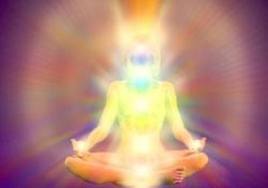
Dealing with Strong Emotions
Everyone reacts strongly to events or find they are dealing with strong emotions with no obvious trigger, at times, only to end up having to deal with the consequences. This can happen whether one expresses their emotions or keeps them in. If personal growth or spiritual development is to be of use or value to us, it must come with ways to deal with strong emotions. The question is how to do this effectively.
It is easy to suggest that someone should just let go of the need to control, or accept what happens and move on. The power of our emotions and the dynamics of our emotional entanglements can make this a challenge to do, and a non-trivial lesson in growth even though once you understand it the process is rather simple. Hence, the answer is both complicated and simple at the same time. What can be the hardest part is the self-evaluation that one must do to move past this form of reaction mechanism. Nor can I in one essay provide a comprehensive guide that covers all the possible variables and circumstances and so forth. What I will try to do instead is look at the big picture first, the concepts around strong emotions, categorize some of them and try to provide some steps one can take to deal with them.
Background
There are two primary root sources for our emotional reactions to events. The first is the type of person we are to begin with, that being the set of characteristics we bring with us into this life. The second is our historical reactions to experiences as this is how we program our rational mind. The two are dependent on each other, though perhaps not as you might presume.
We react to experiences based on our nature, where our nature is the set of potentials we bring with us into each lifetime. You can perceive of these as the set of action-reaction capabilities we have at the beginning of any given lifetime. The more subtle one is that our higher self has chosen to be born as someone in particular to experience what we can as that person. This includes experiences that lead to strong emotional reactions.
This sets up a paradox of sorts, in that we have the experiences we do because of the set of capabilities and attributes chosen for a particular life, and the attributes chosen for a particular life are those necessary for us to have experiences our higher self seeks to evolve. You would be wise if you realized that this is a closed loop. The reason this is so is that from the perspective of our true or higher self, as many wise people have suggested, what we or the “I” consider life is actually to be dead and only in death are we liberated from it.
In terms of strong emotions, the other aspect to note is that our reactions to experiences are learned. They did not happen by accident. When we have an experience we react, our rational mind integrates our reaction. One of the steps that occur during this process is that when we perceive something anything that shares something in common with it (a commonality) becomes “activated”. As a result, all these associated thoughts affect how we react to and subsequently integrate the experience. The number and “strength” of the associated thoughts is a significant factor in my reaction.
There are a couple last points to consider. One is that we are responsible for our own reactions. No one can make us feel a certain way; we can only allow ourselves to. This is not to blame ourselves, for blame is a conscious construct and is irrelevant. There are only choices and consequences. However, this is still an important point. The primary reason is if we do not own our reaction, which we do not if we blame someone else, we cannot be free of it.
The other is simply a reminder that our thoughts and our emotions are energy and that energy follows attention. This means that our emotions and thoughts are not rigid, unmovable or changeable objects. We can work with them consciously to modify or remove them if we understand the dynamics, which I will cover in due course.
Note: I will not be examining external sources of strong emotions or those caused by biological processes or other chemical reactions in the body.
The Emotional Reaction Itself
Emotions have a source, internally the source is our thoughts (as mentioned I will not be looking at physical sources or triggers for emotional reactions). During an experience, our rational mind pre-processes what it perceives by all its various inputs. It has already started to integrate the experience by the time we are conscious of it. The length of “time” it takes for this to occur and how much editing it does of the information depends on whether it has any issues with it or not.
For example, the mind does less pre-processing and editing for something mundane such as picking up pen than it does if we are meeting someone new. In the former case, the integration is quick as there is no threat. In the later case, the mind goes through a process of integrating its perception and only then decides what we are going to be aware of it. During this process, all thoughts that have anything in common with it factor into our reaction. Similarities to others we have met and how we feel about them will factor in. This includes commonalities in gender, skin colour, mannerisms, size, weight, height, clothing and so on. If we feel threatened by them, we can certainly manifest strong emotions as a result. Now, do not think that the rational mind has somehow usurped control; it only does this because we have allowed it to.

In terms of strong emotions, our rational mind primarily triggers them for two reasons: to tell us we are not in control or we are not safe. These reactions have a corresponding affect in our bodies. Control issues are felt as a flush in the chest and security ones as a knot in the pit of our stomach. When we do not notice these particular reactions when we have programmed a block to perceiving or consciously acknowledging them or the energies have spread throughout our energy field masking the source.
Let us say that I am interacting with someone and I am getting angry based on how the interaction is going. The actual reason itself is irrelevant. My reaction is not simply due to what they are saying or doing now, its principle source is from previous thoughts. My thoughts about it, including what I perceive interact with all other thoughts I have ever had, factor into my reaction. Where there are commonalities between the experience now and other thoughts, these other thoughts are “activated” and as a result, the corresponding astral matter resonates. We perceive these astral energies as emotions. When the emotions are lower ones they will trigger our innate fight or fight mechanism to let us know. Let say in this case, it is a topic I feel strongly about we are disagreeing about it. I find that I am reacting strongly and in this case, if I am alert enough to notice the initial reaction, I would perceive a flush in my chest. In another situation, my security might be threatened and I would feel a knot in the pit of my stomach.
We may not notice our initial reaction, as mentioned, which can make determining the nature of the issue harder. If not what we may feel is the anger everywhere, or perhaps more precisely, we cannot localize it to some part of the body as we do when we feel a physical pain. That said, it has no bearing on being able to clear the emotion in the moment, as this is only a factor in determining the source of our reaction.
The energies we manifest build up because we hold onto them. We do not hold onto them because we actually want to, we do so because we tend to be poorly grounded if we are grounded at all. Without a ground, there is no place for the energy to go and it builds up. Picture a balloon gradually beginning to fill and you will get the idea. The longer it goes on the fuller the balloon gets, if the reaction is strong, it could burst. When this happens, we tend to react physically, aggressively in any one of a number of ways. Thus, even a simply reaction can lead to a strong emotional reaction if left to its own devices.

Dealing with our Emotional Reaction
When we are angry, hurt, scared or even say lonely it is because our mind has perceive and reacted to the current situation triggering thoughts that manifest these emotions. Our angry, hurt or other kinds of emotional reactions to our experiences are response patterns that we have established over the course of our lifetime. We are not likely to be able to resolve these patterns in the moment; hence, our focus should be on the following:
- Noticing and acknowledging we are reacting emotionally
- Keeping the energy from building up
- Monitoring our thoughts to get a feel for our issue
- Reduce the flow of our emotional reaction
- Remembering the feelings that are triggered
The first and foremost aspect, in the moment, is realizing we are reacting strongly and acknowledging it. If we do not do this, we have little hope of either managing the energy or resolving the issue sooner rather than later if at all. The acknowledgment is important as this is the ownership aspect of the equation and is important because we cannot fix what is not ours.
At this point, what we want to be thinking is that my reaction is my issue to deal with. We do not need to admit, “It is all my doing or fault.” we only need to admit that only we are reacting to the situation. Developing the strength to accept full ownership over our issues takes time and while beneficial is mostly important to deal with the issue so we stop reacting in this manner under similar circumstances.
For this step it does not matter what we are feeling, it is the same for all. We cannot go back and pretend we are not reacting, regardless of the reaction or our reason. We reacted and that is all there is to it. If possible, try not to slip into justifications for them, excuses or reasons. These types of thoughts are powerful distracters, and will make dealing with the emotions harder and put off resolution even further into the future.
When we have acknowledged our reaction, assuming that we are not in any physical danger in which case we should get clear of the situation, the next step is to deal with the energies our thoughts (our reactions) are manifesting. There are many ways to do this and which one works for you will depend on what skills you have and how focused you can become in the moment.
The very first and best thing to do is to ground. We do by breathing techniques and visualization. By breathing, I mean with each inhale imagine that you are breathing in calming energy up from the earth and when you exhale you are exhaling all the negativity down into the earth. As you breathe, visualize the flow of energy up and down as this strengthens your connection with the earth. Feel the anger or whatever emotion you have as flowing down with each exhale. When doing this you may very well need to exert will, not will power.
You may need to get forceful with yourself in order to keep the process going. This has the added benefit of distracting us from what we are reacting to and can in part reduce how much of the emotional energy we are creating. You can also visualize yourself in a place that you find calming and relaxing or even imagine a calming light shining down on you, provided you are able to do so in the heat of the moment and it is effective at grounding you to prevent energy build up (only experience can tell you this).

This alone can create the ground but you must want to let go of the energy in order for it to happen. Thoughts of self-righteousness, indignation, superiority and the like tend to block the flow and you will not be able to clear the energy.
In order to most effective, you should be thinking about your reaction as well as try to pay attention to the thoughts you are having. It can be difficult to acknowledge them, as we tend to prefer not to admit our failings, especially to ourselves. However, this, as in the previous point, creates a block to the flow of the emotional energy down and into the earth. By doing this we reduce the amount of emotional energy we are manifesting and make it even easier to get back to a calmer more balanced state of mind.
The last point is a bit more advanced; however, I wanted to mention it. Remembering our emotional reaction is very valuable if we want to work on resolving the issue. We can meditate and during our meditation deliberately remember our emotions and through a form of remote viewing can observe the energy and find connected thoughts or memories. That is, during meditation (after grounding, clearing and centering ourselves), when our minds are relatively clear, we can consciously remember the emotions we felt and then allow them to be. If our minds are clear of thoughts and we have focused our attention the energy will, in a manner, speak to us. The energy will activate connected thoughts, which we can then notice and explore. In this exploration, we can remember the events that led to the thought and then work on why we manifested it in the first place.
After the moment has passed
Before you leave the situation, take a few moments to try to remember the interaction and your reactions. You will gain little if if you walk away and forget about the event. Further, even if you performed all of the above steps you likely still have the issue to deal with. If you do not deal with it at some point, you will find yourself in situations where you react in a similar fashion.
Lessons have a way of repeating themselves either as they were or in a new form until we resolve the underlying poor programming that led to them. Issues are interconnected. When we try to clear one another comes in to add to the challenge. Clearing issues takes time, just as it takes time to untangle a ball of thread. The key to this lies in not take on to much at once. Work on it experience by experience. If you were able to remember the feelings triggered, you can explore them later as I mentioned. If you are not able to remember or forgot to do not dismay, you will just have to try again next time. Do not judge yourself negatively for this, as you will remember when you are ready and able to and not before; however, this tells you that you must focus more when such moments occur again.
While the above does not cover all aspects of dealing with strong emotions, it covers the essentials. It is the way for those who are trying to find balance in their lives verses those who just want to get by. If you truly are determined to do, and follow the above steps in some fashion, you are telling your rational mind that you want to change. This is a powerful seed to plant in your mind and will eventually lead you to success. How quickly you get there depends on your desire to do so. This is where ones will really comes into play for it is easy to become discouraged, to believe you will never get past the issue and that it will plague you for all time. This certainly can happen, but it does not have to. It is all up to you.

© 2011 Allan Beveridge






